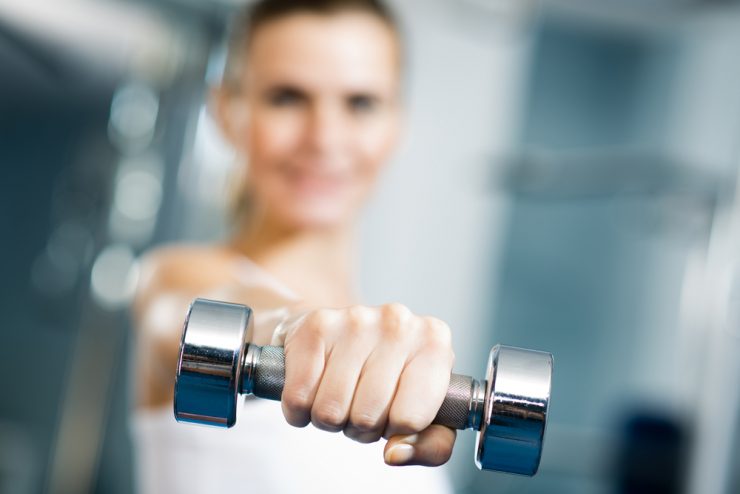Your skeleton is so important and provides you with a solid framework for life, but just like other parts of the body it needs extra care as you grow older.
Medical Herbalist Gabriella Clarke explains how to give yours the attention it deserves.
Bone cells go through a constant process of renewal and until the age of 30 are replaced faster than they are lost. From then on, however, we start to lose bone at about 1% a year as part of the natural ageing process.
In women, this bone loss speeds up to 2 or 3% around the time of the menopause as a result of the natural drop in oestrogen, which helps to protect bone, making them more vulnerable to osteoporosis. Otherwise known as brittle bone disease, this occurs when bones lose calcium (the mineral in bone) and collagen (the gluey protein that helps to keep them strong). As a result they become more fragile and likely to break.
OSTEOPOROSIS
Statistics show that osteoporosis affects a staggering one in three women over the age of 50. Although middle-aged men are less susceptible because their bones are bigger and denser, 1 in 12 also succumb to this debilitating disease as a result of low levels of testosterone.
Apart from the natural ageing process, other risk factors for osteoporosis include a family history, early menopause, smoking, a high alcohol intake, being thin and long term use of steroids for conditions such as arthritis and rheumatism.
But despite these factors, osteoporosis is not inevitable and there is still lots you can do to keep your bones strong and healthy.
GET OUT IN THE SUNSHINE
We need vitamin D to help our bodies absorb calcium and sunlight is the main source of vitamin D. Exposing your hands, arms and face for around 10 to 20 minutes a day is the recommended amount for maximum bone benefits. Remember to take care not to burn and to apply sunscreen if you stay out in the sun for longer. Small amounts of vitamin D can be found in some food, with egg yolk and oily fish being the main sources.
EAT WELL
Bone building is a complex mechanism involving many elements. Calcium is a key nutrient needed for good bone health, but it is only part of the equation. Magnesium phosphorus, vitamin C, vitamin D and boron are all important. Green leafy vegetables, nuts and seeds are also full of bone healthy nutrients. Some studies also show that phytoestrogens – natural substances found in plants that mimic oestrogen – may help to keep bones strong.
GO FOR FATS
Research suggests that foods rich in omega 3 and omega 6 essential fatty acids (EFA’s) seem to help absorption of calcium from the diet. Omega 3’s are found in fish oils, oily fish (mackerel, herring, salmon, sardines and pilchards) and some cooking oils such as rapeseed and flaxseed. Good sources of omega 6’s include sunflower and corn oil, almonds, green leafy vegetables, flaxseeds and wholegrain cereals.
WATCH YOUR DRINKING & SMOKING
Smoking can have a toxic effect on bones as well as triggering an early menopause so is best avoided. Excess alcohol can have a similar effect. The best advice is to stick within the recommended government weekly limits of no more than 14 units a week.
KEEP MOVING
Exercising plays a vital part in keeping bones healthy. It helps to stimulate bone-making cells as well as strengthening bones. High impact activities are the most beneficial; running jogging, brisk walking and lifting weights are all good choices. If you are new to exercise, though, it is better to opt for gentler alternatives such as rowing in the gym and swimming to avoid harming joints initially. You should aim for 30 minutes of some sort of activity most days of the week.
SUPPLEMENT SUPPORT
The current UK government recommendation is that adults need a daily intake of 700mg of calcium, and osteoporosis experts suggest that if people are taking an osteoporosis drug treatment, they may benefit from a calcium intake of around 1000mg a day. If you are able to obtain your calcium requirements from your diet there is no need to take a supplement as well. They are useful, however, if you have a restricted diet and are unable to achieve this.























